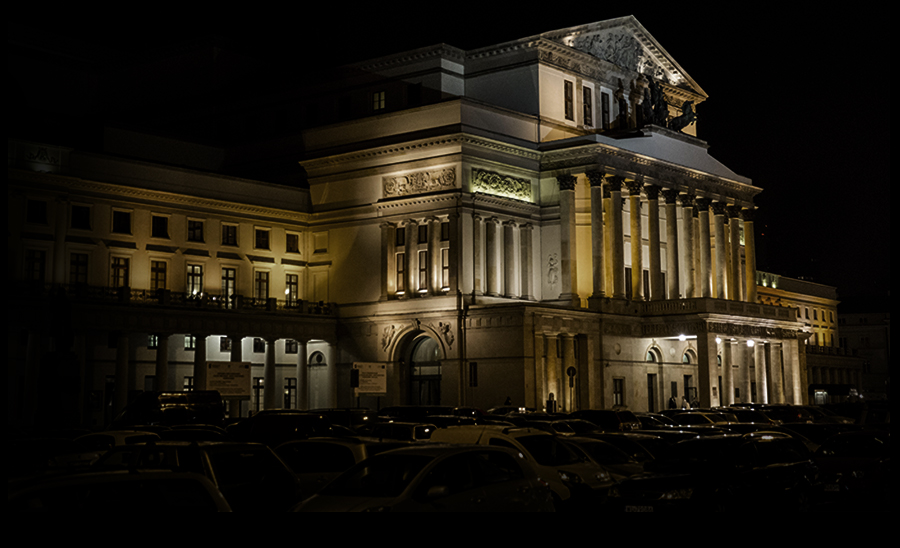 The Polish National Opera's events:
The Polish National Opera's events:
1 October
10 a.m.
Redutowe Rooms
Opera University for Adults
Recitative, aria, bel canto, or Opera 101
A lecture by Tamara Granat (in Polish)
The lecture will cover the fundamentals of opera as a work of music and a stage show. We will discuss the role of professionals who make opera happen: singers, orchestra musicians, conductors, as well as those who work behind the scenes, from stagehands to shoemakers. The participants will be invited to take an active part in the class, while two opera soloist will present how singers warm up their voice. This will be followed by a mini recital of the most beautiful and best known arias.
Tickets go on sale on 19 September at 11 a.m. and are available on a first come, first served basis.
noon–6 p.m.
Theatre Museum (downstairs foyer)
Exhibition Beyond 'Aida': Egyptomania on Polish stages
A fascination with ancient Egypt entered Polish theatre at the turn of the 18th and 19th century, manifesting itself in many motifs over the next 200 years. They arrived together with foreign fashions and internationally popular plays, but there were also Polish theatrical pieces and novel adaptations with Egyptian themes. The most prominent examples include Shakespeare's Antony and Cleopatra, Cyprian K. Norwid's Cleopatra and Caesar, Schikaneder and Mozart's The Magic Flute, Ghislanzoni and Verdi's opera Aida, Herbert's operetta The Wizard of the Nile, the ballet The Pharaoh's Daughter with music by Pugni and libretto by Saint-Georges and Petipa, or stage adaptations of Bolesław Prus's novel Pharaoh. The majority of the works were meant for adult audiences, yet there a children's puppet show titled The Pharaoh's Son was staged by Maria Kann at the Pinokio Puppet Theatre in Łódź in 1970. The exhibition shows archive set designs, costumes, props, photographs, and recordings.
2 October
11 a.m
Młynarski Hall
What is a conductor for?
A lecture and workshop by Marta Kluczyńska (in Polish)
The lecture will shed light on the many aspects of conducting and will conclude with a workshop for the participants.
'What is a conductor for?', 'After all, everybody in the orchestra has their own sheet music', 'They are not even looking at the conductor', 'A woman conductor?' – these are among the most frequently asked questions regarding the role of an orchestra conductor. In its first part, the lecture will address them all, covering the responsibilities that come with the job and qualifications that a conductor must have, with particular emphasis on those that are not in plain sight during a concert or show. As part of a practical exercise, the participants will try clapping or singing as directed by the conductor, which is akin to what orchestra musicians or choristers do when preparing and performing a work of music.
In the second part, we will be joined by two pianists who will play piano reductions on two pianos to imitate a symphony orchestra (which is what happens during conducting studies or rehearsals at opera houses), giving the participants a chance to conduct a piece of music. Apart from the conducting technique, their workshop will also introduce the attendees to dynamics, tempo, articulation, communication with the orchestra, and interpretation.
The meeting with conclude with a Q&A session. Duration: 90 minutes. Tickets go on sale on 19 September at 11 a.m.
3–4 p.m. and 4:15–5:15 p.m.
Theatre Museum (downstairs foyer)
Curator's tour of the exhibition Beyond 'Aida': Egyptomania on Polish stages with Katarzyna Wodarska-Ogidel (in Polish)
More about the exhibitionTickets go on sale on 19 September at 11 a.m. and are available on a first come, first served basis.
•••
Box Office opening hours, tickets are also available online at teatrwielki.pl
The campaign is organised by the Ministry of Culture and National Heritage of Poland






 ''
''